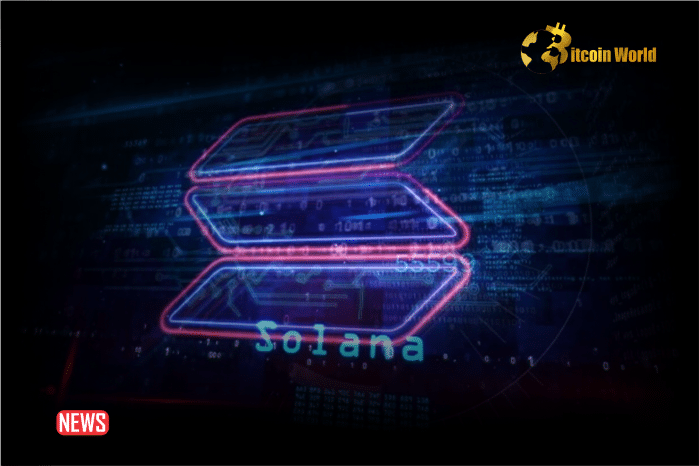Is Solana’s express lane to crypto riches hitting a major traffic jam? Recent reports indicate a staggering transaction failure rate on the Solana network, leaving users frustrated and questioning the network’s reliability. But is it as bad as it seems? Let’s dive into the details and explore what’s really happening under the hood.
The Solana Transaction Failure Rate: What’s the Real Story?
According to Dune Analytics, approximately 75% of non-vote transactions on Solana are failing. This alarming statistic has sparked heated debates and raised concerns about the network’s ability to handle increasing demand, especially amidst the memecoin mania.
- The Claim: 75% of non-vote transactions are failing.
- The Reaction: Users express frustration on X (formerly Twitter) regarding failed transactions and a deteriorating user experience.
Mert’s Counter-Argument: Bot Spam or Legitimate Failures?
Mert, CEO of Helius and a prominent figure in the Solana ecosystem, challenges the narrative of widespread transaction failures. He argues that a significant portion of these failures are actually due to “bot spam,” specifically failed arbitrage attempts.
A few things:
1) > 95% of that chart is failed arbitrage attempts by bots. Wallets simulate before sending the tx, so your users aren't affected by this
2) Increasing priority fees will not solve this because the spam activity occurs before scheduling https://t.co/WwflE8V3TS
— Mert | Helius (@0xMert_) March 24, 2024
Mert suggests that wallets often simulate transactions and notify users of potential failures beforehand, mitigating the impact of bot spam on genuine user activity. He estimates that approximately 95% of the reported failures are attributed to these unsuccessful arbitrage attempts.
The Memecoin Mania and Network Strain
The surge in transaction failures coincides with an explosion in memecoin trading activity on Solana. The launch of numerous memecoins, such as Book of Meme (BOME) and Slerf (SLERF), which rapidly reached valuations of hundreds of millions, has undoubtedly placed immense pressure on the network.
What’s the Solution? Networking Patches on the Horizon
According to Mert, simply increasing transaction priority fees won’t solve the problem, as the spam activity occurs before the scheduling process. The real solution lies in networking patches designed to address these specific congestion issues. These patches are reportedly in development and expected to be rolled out soon.
Solana’s Market Performance Amidst the Chaos
Despite the ongoing network challenges, SOL, Solana’s native cryptocurrency, has experienced a 5.7% decline in the past week, mirroring a broader market downturn. This highlights the impact of network instability on investor confidence.
Key Takeaways:
- Transaction Failures: A significant issue on the Solana network, but the cause is debated.
- Bot Spam: Mert argues that most failures are due to bot activity, not genuine user transactions.
- Memecoin Impact: The surge in memecoin trading has exacerbated network congestion.
- Solutions: Networking patches are in development to address the underlying issues.
See Also: SushiSwap Faces Backlash Over Proposed Governance Changes
Disclaimer
Disclaimer: The information provided is not trading advice. Bitcoinworld.co.in holds no liability for any investments made based on the information provided on this page. We strongly recommend independent research and/or consultation with a qualified professional before making any investment decisions.
#Binance #WRITE2EARN
Disclaimer: The information provided is not trading advice, Bitcoinworld.co.in holds no liability for any investments made based on the information provided on this page. We strongly recommend independent research and/or consultation with a qualified professional before making any investment decisions.




